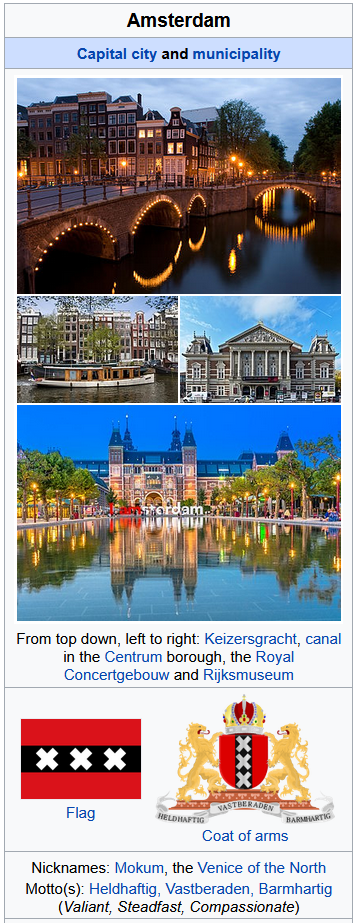Table of Contents
What is MediaWiki?
Introduction
MediaWiki is a free server-based software, licensed under the GNU General Public License (GPL). It's designed to run on a large server farm for a website that gets millions of hits per day.
MediaWiki is an extremely powerful, scalable software and a feature-rich wiki implementation that uses PHP to process and display data stored in a database, such as MySQL.
Pages use MediaWiki's wikitext format, so that users without knowledge of HTML or CSS can edit them easily.
When a user submits an edit to a page, MediaWiki writes it to the database, but without deleting the previous versions of the page, thus allowing easy reverts in case of vandalism or spamming. MediaWiki can manage image and multimedia files, too, which are stored in the filesystem. For large wikis with lots of users, MediaWiki supports caching and can be easily coupled with proxy server software. With dedicated extensions, MediaWiki can also handle structured data. https://www.mediawiki.org/wiki/Manual:What_is_MediaWiki%3F

MediaWiki is flexible and versatile, but that comes at the price of complexity. It can be pretty troublesome to set up and maintain, let alone find MediaWiki experts. Seen from a business point of view, I dare to state that MediaWiki is overkill for most organizations that need a wiki system for internal use. For these business cases, I always recommend DokuWiki.
Semantic MediaWiki

Since MediaWiki is aimed at building huge knowledge management systems, adding semantics is a clever thing to do. Semantic MediaWiki is a free, open-source extension to MediaWiki that lets you store markers within the wiki's pages by marking pieces of content with some agreed “labels”. This way textual data can be queried an aggregated. Labeling can be done inline like [[MyProperty::MyValue]] or with templates. Data entry can also be form-based with Page Forms.
Wikis are a great tool for collecting and sharing knowledge in communities and organizations. This knowledge is mostly contained within texts and multimedia files, and is thus easily accessible for human readers. But though wikis are very good for storing and retrieving individual facts, they are less useful for getting queried or aggregated information. As a simple example, let's say you use a wiki that stores information about projects related to your organization. You have the following simple question: “What are the active projects that were started in 2012?”
This should be an easy question to answer, but in fact it's not - you would have to read through all of the pages about projects every time you wanted to answer the question. Text searches won't necessarily help. Categories could help to some extent, although they're not an ideal tool and maintaining them can become complex (see below). And there doesn't exist an artificial intelligence tool that could help with this task either.
Semantic MediaWiki enables wikis to make their knowledge computer-processable, so that you can find and display the answer to this question - and to many more.
https://www.semantic-mediawiki.org/wiki/Help:Introduction_to_Semantic_MediaWiki
Some MediaWiki sites
Semantics for Amsterdam
I live near the city of Amsterdam in the Netherlands, so I decided to use the Wikipedia page on Amsterdam as an example of some semantics used on that page.
On the page https://en.wikipedia.org/w/index.php?title=Amsterdam the summary information, shown as a screenshot on this page on the right or below, is registered as follows:
<!-- Name and transliteration -->
| name = Amsterdam
| settlement_type = [[Capital of the Netherlands|Capital city]] and [[List of municipalities of the Netherlands|municipality]]
<!-- Images, nicknames, motto -->
| image_skyline = {{Photomontage|position=center
| photo1a = KeizersgrachtReguliersgrachtAmsterdam.jpg
| photo2a = Amsterdam - Boat - 0635.jpg
| photo2b = Concertgebouw 04.jpg
| photo3a = Amsterdam - Rijksmuseum - panoramio - Nikolai Karaneschev.jpg
| size = 270
| spacing = 2
| color = #FFFFFF
| border = 0}}
| image_caption = From top down, left to right: [[Keizersgracht]], [[Canals of Amsterdam|canal]] in the [[Amsterdam-Centrum|Centrum]] borough, the [[Concertgebouw|Royal Concertgebouw]] and [[Rijksmuseum]]
| image_alt =
| image_flag = Flag of Amsterdam.svg
| flag_size = 100x110px
| flag_alt =
| image_shield = Wapen van Amsterdam.svg
| shield_size = 150x220px
| shield_alt =
| nicknames = [[Mokum]], the [[Venice of the North]]
| motto = [[Coat of arms of Amsterdam|Heldhaftig, Vastberaden, Barmhartig]] (''Valiant, Steadfast, Compassionate'')
